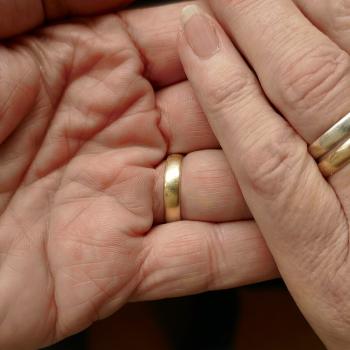My friend John Hathaway recently hosted a conversation prompted by a classic comic from the New St. Joseph’s Baltimore Catechism on the serious spiritual peril you put yourself into if you go to confession but choose not to mention a mortal sin. There’s a difference, however, between forgetting and omitting.
Here’s the scoop on how the sacrament works when you’ve got an unconfessed mortal sin:
1. If you are aware of having committed a mortal sin, make an act of contrition right away. (That means: Pray to God and tell Him you are sorry.) At your first opportunity, go seek out a priest and make a sacramental confession. Refrain from presenting yourself for communion until you’ve been to confession.
2. When you go to confession, you must confess all the mortal sins you are aware of. (You may also confess any venial sins you have committed. It is good for your soul to go to confession regularly even if you are not aware of any mortal sins.)
3. If you intentionally choose not to mention one of your unconfessed mortal sins, you are committing the sin of sacrilege. Do not pass go, do not receive communion, get your rear end back in the confessional and be out with it.
4. If you accidentally forget to list one of your mortal sins, your confession is still valid, even if you remember two seconds after you’ve stepped out of the confessional and the next person has walked in.
5. In the event you realize after the fact that you honestly, unintentionally, failed to mention a particular mortal sin, do mention it next time you go to confession. You can say, “And I forgot to mention in my last confession the sin of _______.” But you are still absolved in the meantime and are free to receive Holy Communion.
6. Often as we grow in the Christian life we realize we’ve been doing something that is in fact a mortal sin, but we didn’t realize it at the time. In order to be culpable (guilty) of a sin, you have to actually know it’s a sin. So if you really, truly, did not understand that something was a serious sin, you are not guilty of freely choosing to reject God and go your own way, which is what mortal sin is. Don’t play a game of “Oh gosh I didn’t know, wink wink.” But you don’t need to fear that God was trying to trick you into eternal damnation if you honestly just didn’t know better until now.
It is a good habit, however, to go ahead and mention the sin next time you go to confession. This helps you make a clean break with your past, and resolves any doubt you have about the state of your soul.
7. God loves you. He is trying to catch you, but He’s trying to catch you for Heaven. Indeed He’s gone through a hellish amount of trouble to get you there.
8. If you have a nagging feeling you are guilty of a serious sin, or might be, despite having made an honest effort to learn right from wrong and to regularly seek out confession when you can, sit down and talk to your pastor about it. (You’ll need to make an appointment, and go ahead and tell him you’ll probably need an hour.) Make a decision to trust God and to therefore follow the instruction of your pastor, whom God has put in place as the shepherd of your soul, in humble obedience.
When you find it’s nearly impossible to trust that your pastor has given you good advice, charitably assume that Our Lord is chuckling appreciatively at your thoroughness. How can Our Lord not love His little child who is so deeply concerned about doing what is right?
9. If you find you need to go to confession more than once a week, seek pastoral guidance ASAP and follow it.
10. If you aren’t sure whether something is a sin, when you get to confession just ask the priest. And then you’ll know.
Recommended Reading: Fr. Christopher Smith’s very thorough and readable Guide to Confession.
















